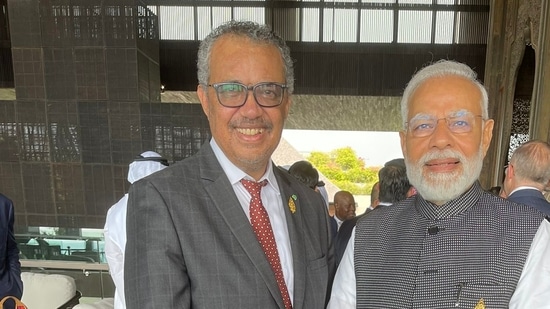'Thank you PM Modi...': WHO chief tweets from Bali G20 summit
G20 Summit: WHO Chief Tedros Adhanom Ghebreyesus also shared a photograph of him with PM Modi.
World Health Organization chief Tedros Adhanom Ghebreyesus on Tuesday shared a note of gratitude for Prime Minister Narendra Modi for the support in setting up of a global traditional health centre to ensure “health for all”. PM Modi and the WHO chief are in Bali, Indonesia, to attend the G20 Summit. At the summit, the head of the top global health body also spoke about the pandemic and health crisis that had ravaged the global economy.

In a tweet addressing the Prime Minister, he wrote: “Thank you India Prime Minister @narendramodi for your collaboration with @WHO on hosting and building the global traditional health centre. Together for #HealthForAll! #G20. (sic)”. He also posted a photograph of both of them.
Earlier this year, the WHO and the government of India had signed an agreement to set up the WHO Global Centre for Traditional Medicine. “This global knowledge centre for traditional medicine, supported by an investment of USD 250 million from the Government of India, aims to harness the potential of traditional medicine from across the world through modern science and technology to improve the health of people and the planet,” read a press statement.
Noting that about 80 per cent of the global population is estimated to use traditional medicine, the health body had also underlined: “To date, 170 of the 194 WHO Member States have reported the use of traditional medicine, and their governments have asked for WHO’s support in creating a body of reliable evidence and data on traditional medicine practices and products.”
Meanwhile, at the G20 Leaders' Summit, Dr Tedros - speaking of coronavirus - stressed that the "most severe health crisis in a century has taken six million lives and trillions of dollars in severely disrupted trade, tourism, business, education, geopolitics and much more." "Covid has shown that when health is at risk, everything is at risk," he pointed out.
“Food and energy are fundamental to human life, and human health. The lack of either, or their over-consumption, can have severe consequences for health and economies," he insisted.






